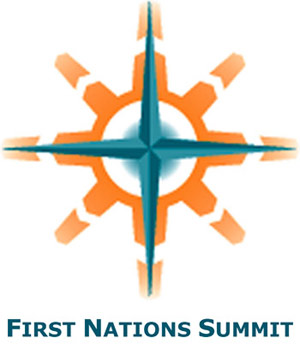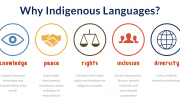Coast Salish Territory/Vancouver, BC— Leaders of the First Nations Summit are welcoming today’s announcement outlining Canada’s commitment to achieving reconciliation with Indigenous peoples through a renewed, nation-to-nation, government-to-government, and Inuit-Crown relationship based on recognition of rights, respect, co-operation, and partnership as the foundation for transformative change and the identification of ten principles that will guide the review of laws and policies respecting the Government of Canada’s Relationship with Indigenous peoples currently underway.
The First Nations Summit believes these key principles will help to better inform federal government policies and mandates for the negotiation of treaties, agreements and other constructive arrangements. The ten principles provide an important and necessary framework for discussions between Indigenous peoples and the federal government moving forward.
The First Nations Summit expects that today’s announcement will trigger widespread discussion amongst Indigenous Nations across Canada as we move forward with law and policy reform in Canada.
The First Nations Summit executive looks forward to meeting with the Ministers Working Group on the Review of Laws and Policies related to Indigenous Peoples in the coming days to provide our views on the ten principles and the review currently underway.
List of the ten Principles respecting the Government of Canada’s relationship with Indigenous peoples:
- All relations with Indigenous peoples need to be based on the recognition and implementation of their right to self-determination, including the inherent right of self-government.
- Reconciliation is a fundamental purpose of section 35 of the Constitution Act, 1982.
- The honour of the Crown guides the conduct of the Crown in all of its dealings with Indigenous peoples.
- Indigenous self-government is part of Canada’s evolving system of cooperative federalism and distinct orders of government.
- Treaties, agreements, and other constructive arrangements between Indigenous peoples and the Crown have been and are intended to be acts of reconciliation based on mutual recognition and respect.
- Meaningful engagement with Indigenous peoples aims to secure their free, prior, and informed consent when Canada proposes to take actions which impact them and their rights on their lands, territories, and resources.
- Respecting and implementing rights is essential and that any infringement of section 35 rights must by law meet a high threshold of justification which includes Indigenous perspectives and satisfies the Crown’s fiduciary obligations.
- Reconciliation and self-government require a renewed fiscal relationship, developed in collaboration with Indigenous nations, that promotes a mutually supportive climate for economic partnership and resource development.
- Reconciliation is an ongoing process that occurs in the context of evolving Indigenous-Crown relationships.
- A distinctions-based approach is needed to ensure that the unique rights, interests and circumstances of the First Nations, the Métis Nation and Inuit are acknowledged, affirmed, and implemented.
For detailed description of the ten principles visit: http://www.justice.gc.ca/eng/csj-sjc/principles-principes.html
The First Nations Summit speaks on behalf of First Nations involved in treaty negotiations in BC. The Summit is also a NGO in Special Consultative Status with the Economic and Social Council of the United Nations. Further background information on the Summit may be found at www.fns.bc.ca.





Be the first to comment on "Canada announces ten principles guiding its relationship with Indigenous peoples"